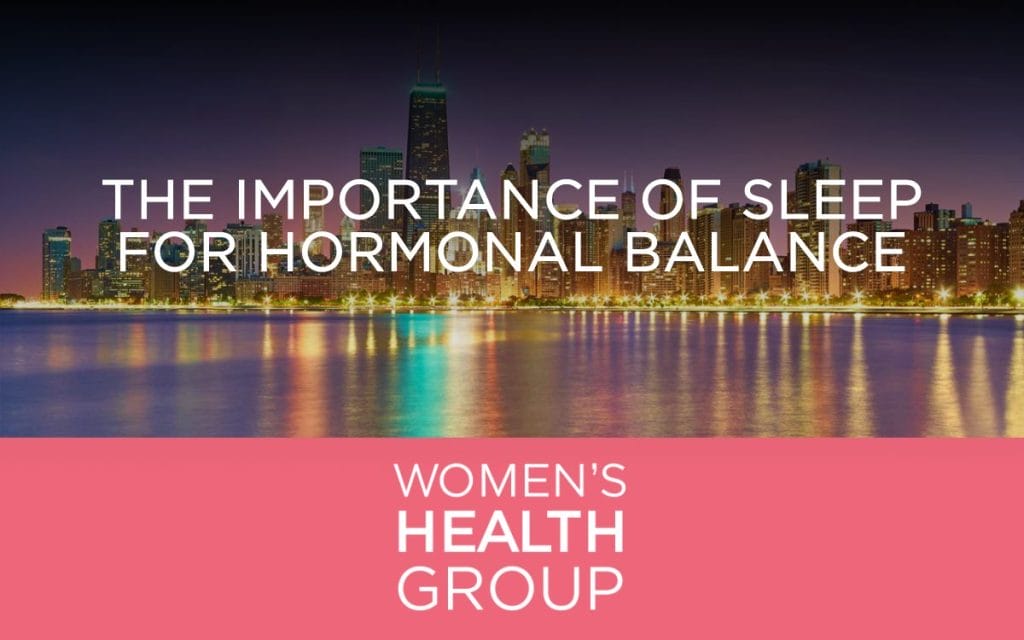The Significance of Sleep for Hormonal Balance in Women’s Health
If you are a woman and you’ve been neglecting your sleep, you will probably want to change your sleep habits after reading this. A good night’s sleep is more essential than you may realize. It goes beyond merely banishing under-eye circles or improving your mood. Adequate sleep is a key part of a healthy lifestyle and can benefit your heart, weight, mind, and more. This post aims to educate and emphasize the importance of sleep health and how it plays a vital role in hormonal balance, especially in women.
Sleep – a vital function that our body requires daily – affects almost every type of tissue and system in the body – from the brain, heart, and lungs to metabolism, immune function, mood, and disease resistance. Ob-gyns at the Women’s Health Group in Chicago, Illinois, enlighten us on the subject, especially how it profoundly influences hormonal balance in women. Here are some critical points they wish to convey:
The Intricate Link Between Sleep and Hormones in Women
Investigations into sleep and its impact on hormonal balance have led scientists and healthcare providers to some eye-opening discoveries. A woman’s hormonal balance and her sleep are intricately linked. Sleep impacts the secretion and balance of hormones, and imbalanced hormones, in turn, can wreak havoc on sleep health.
The female body is a complex system of various types of hormones that keep fluctuating at different stages of life – puberty, pregnancy, and menopause. A long-standing sleep debt can lead to physical and emotional health issues by disrupting these hormonal balances.
For instance, lack of sleep can increase the stress hormone cortisol, leading to anxiety, depression, heart disease, memory impairment, and even weight gain. Leptin and ghrelin, hormones that regulate hunger and fullness, are also affected by sleep. This explains why sleep deprivation often leads to overeating and eventually obesity.
Sleep deprivation also impacts estrogen and progesterone, hormones intricately linked to a woman’s menstrual cycle, mood, and quality of sleep. Experts at the Women’s Health Group emphasize the necessity of quality sleep for maintaining an optimal hormonal balance.
Unveiling the Importance of Sleep Health in Hormonal Balance
A consistent lack of sleep, poor sleep quality, sleeping at the wrong times, and sleep disorders can all disrupt a woman’s hormonal balance, leading to a diverse range of symptoms. Potential effects include irregular periods, premenstrual syndrome (PMS) symptoms, mood swings, weight gain, problems with fertility and pregnancy, menopause symptoms, decreased sex drive, and overall poorer quality of life.
By contrast, maintaining good sleep health – including getting enough sleep, at the right times, of the right quality – has been identified as a key factor for healthy hormonal balance. Good sleep helps:
• Regulate stress hormones, improving emotional health and reducing the risk of heart disease.
• Control appetite hormones and therefore weight.
• Enhance mood, energy levels, and quality of life by ensuring adequate levels of estrogen and progesterone.
• Increase fertility by regulating necessary hormones.
The Women’s Health Group and other esteemed sources such as Mayo Clinic and Women’s Health Gov support these views and offer various tips and resources to maintain or improve sleep health.
Steps to Improve Sleep Health for Optimal Hormonal Balance
Given the critical role sleep plays in hormonal balance, it’s in every woman’s best interests to prioritize sleep health. Here are a few practical steps:
1. Keep a Consistent Sleep Schedule: Go to bed and wake up at the same time every day.
2. Create a Restful Environment: Make your room dark, quiet, and cool.
3. Limit Exposure to Screens before Bed: The blue light emitted by computers, smartphones, and TVs can interfere with sleep.
4. Exercise regularly: It can help reduce stress and anxiety, promoting better sleep.
5. Limit Caffeine and Alcohol: Both can interfere with the quality of your sleep.
Investing time and effort in your sleep health can prove essential for your hormonal balance and overall health. Remember, good sleep isn’t a luxury; it’s a necessity.
Takeaway
An overriding theme from the Women’s Health Group in Chicago, Illinois, and indeed the worldwide medical community, is the importance of good quality sleep for maintaining hormonal balance in women.
The profound effects of sleep on hormonal balance can’t be ignored. Sleep deprivation tends to result in unfavourable hormonal changes, which can provoke a broad range of physiological and psychological issues, from weight gain to mood disorders. Conversely, good sleep health encourages a healthy hormonal balance, with numerous benefits for overall health and quality of life.
Prioritizing sleep health is an important step for every woman. A concerted effort should be made to promote good sleep health and, by implication, healthy hormonal balance. After all, as the Women’s Health Group is keen to emphasize – sleep is not an indulgence; it is a biological necessity.




